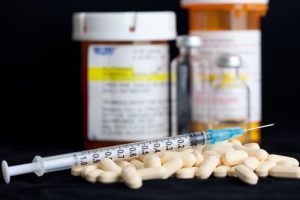Stress has emotional and physical consequences. Most of us are familiar with feeling some degree of anxiety when we face a stressful situation. However, the physical effects of stress are not as well known.
As we need to rise to meet a challenge, a little stress in life can be inspiring, but if life or a life event exceeds our capacity to cope, it can cause emotional and physical problems.
Stress prompts the body to release cortisol, the primary hormone of tension in the body. Increased blood cortisol levels change how our body’s immune system reacts to infections. Long-term and chronic stress leads to persistently elevated cortisol levels. The presence of cortisol in the bloodstream for a prolonged period reduces the effectiveness of the immune system by reducing the white blood cell count.
These effects result in chronic infections, chronic autoimmune inflammatory diseases, cancers, and other physiological disorders.
As the pandemic continues, many individuals have encountered more stress than usual. Nearly 8 in 10 adults suggest a significant cause of stress in their lives is the coronavirus pandemic.
Why does bad news often precede illnesses, coughs, and common colds?
Bad news causes us to feel stressed, which in turn weakens the immune system. So, we are even more vulnerable to germs we are exposed to at that moment and we often become sick.
Health conditions due to long-term exposure to stress
The National Institutes of Health says that continued stress on your body from everyday triggers is often the most difficult to identify but could lead to serious health issues such as:
● Heart disease
● Diabetes
● High Blood Pressure
● Cancer.
Studies also uncovered many other stress-related health concerns, such as the risk of obesity, Alzheimer’s disease, stomach disorders, and asthma, which tends to worsen or increase due to stress.
What Can You Do?
For a long and healthy life, it’s vital to focus on supporting your immune system on an ongoing basis. One of the best ways to do this is with natural, powerful immune system boosters contained in camel milk.
In the serum of camel milk, a completely new class of immunoglobulin has been discovered, which is fundamentally different from all other previously known antibody classes. Cameloid Immunoglobulins (only found in camels, llamas, alpacas, vicunas, and guanacos) are used by the immune system for easy and quick targeting of foreign substances. This is one of the ways camel milk strengthens and supports the gastrointestinal immune system.
Learn more about Camel Milk

 If you watch TV at all, I’m sure you’ve heard the drug company commercials about Biologics?
If you watch TV at all, I’m sure you’ve heard the drug company commercials about Biologics?